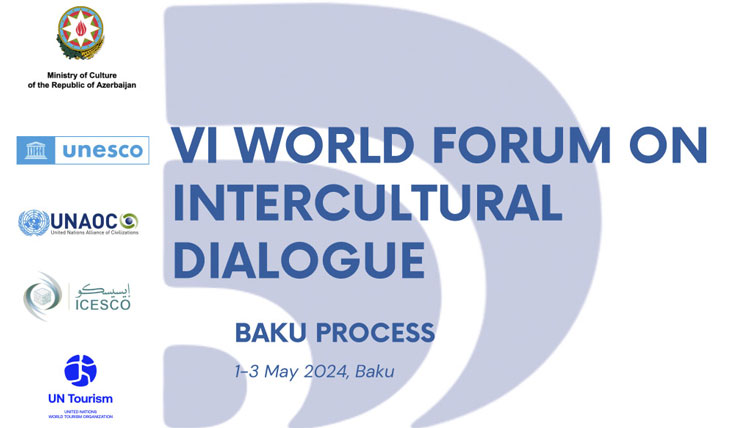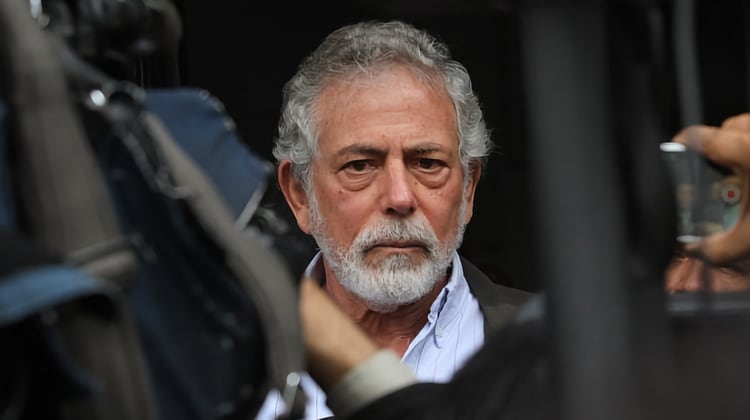Juan David Latorre
The 6th World Forum on Intercultural Dialogue will take place in Baku, Azerbaijan, from 1 to 3 May . This year’s Forum will be guided by the overall theme Dialogue for Global Peace and Security: Cooperation and Interconnectivity.
Organised by the Islamic Organization for Science, Education and Culture (IСESCO) together with the United Nations Alliance of Civilizations (UNAOC), UNESCO and the United Nations World Tourism Organization, this Forum provides a unique and valuable platform for international organisations, prominent leaders and practitioners travelling to the Azerbaijani capital to engage in meaningful discourse on pressing global issues that transcend national borders. This year’s theme underscores the crucial role of intercultural understanding and collaborative efforts in addressing the complex challenges of global peace and security, cultural heritage preservation, cultural and tourism routes, interfaith dialogue, climate change, peace through culture, illegal migration, artificial intelligence and many other important issues.
Throughout the three-day forum, visitors will have the opportunity to participate in high-level panel discussions with renowned experts and distinguished decision-makers, collectively seek solutions to address critical global challenges, network with international colleagues from diverse backgrounds and organisations. In addition, the Forum will host the 3rd High Level Panel of International Organisations and the 5th Ministerial Meeting.
With a foot in both Asia and Europe, Azerbaijan embraces diversity and absorbs the values of different cultures and civilisations, enabling it to assume a truly bridging role.
The 6th World Forum on Intercultural Dialogue is being held within the framework of the Baku Process, launched by the Republic of Azerbaijan in close cooperation with leading international partners in 2008, as a global initiative aimed at promoting intercultural dialogue, understanding and harmony within and between diverse cultures. Senior officials, delegations from foreign countries, representatives of international organisations, public figures and world-renowned cultural figures are expected to attend the Forum. The Forum is expected to host a series of cultural events such as concerts, festivals and performances to highlight the diversity of cultures and promote an atmosphere of cooperation and mutual understanding.
Building on the positive experience of previous Forums, the 6th Forum will provide a platform for governments, international organisations, experts, academics, policy makers and practitioners to engage in meaningful discussions on the evolving dynamics of cross-cultural communications and global security in an interconnected world.
The success and immense contribution of the Baku Process has been repeatedly highlighted at the international level, and its invaluable role in promoting intercultural dialogue has been stipulated in the reports and decisions of major international organisations. Thus, the UN Secretary-General’s Annual Report to the UN General Assembly on intercultural and inter-religious dialogue singled out the Baku Process as a vanguard in advocating dialogue between cultures. A year later, the UN General Assembly unanimously adopted a resolution highlighting the Baku Forum as a key global platform for promoting intercultural dialogue.
Furthermore, at its 215th session, UNESCO’s Executive Board adopted a resolution expressing its strong support for the Baku Process and urging all its Member States and major international organisations to participate closely in it.
The three main objectives of this 6th World Forum on Intercultural Dialogue are: promoting dialogue for peace, enhancing global security and fostering cooperation. The first of these underlines the importance of dialogue as a tool for resolving disputes, preventing conflicts from degenerating into violence and ultimately fostering sustainable peace. The second is all the more important given the era of unprecedented global interconnectivity; the world faces multifaceted security challenges, ranging from traditional threats such as armed conflict and terrorism to less familiar ones such as cyber-attacks, climate change, pandemics, food insecurity and resource scarcity. The third objective promotes multi-stakeholder collaboration between governments, international organisations, the private sector and civil society, and will focus on examining existing gaps, seeking new methods and technologies, and sharing knowledge and best practices that can change the rules of the game in the fight for global security.
Among the conferences and roundtables to be held over the three days of the Forum, special mention should be made of the High Level Panel of International Organisations, which will address the theme Sustainable Pathways to a Greener Future: Collaborative Actions for COP29 and Beyond in a special plenary session. The Year of Solidarity for a Green World 2024 and COP29 in Azerbaijan provide a global platform to address the most pressing environmental issues.
International organisations play a key role in shaping policies and actions for a sustainable future. This high-level panel aims to bring together representatives of various international organisations to discuss and propose concrete collaborations.
By fostering dialogue and cooperation, and highlighting effective leadership strategies, we aim to contribute to a better understanding of the complex challenges and opportunities of global interconnectedness in the 21st century.
The full programme of sessions and conferences at the 6th World Forum for Intercultural Dialogue, under the theme Dialogue for Global Peace and Security: Cooperation and Interconnectivity, is available on this website.







